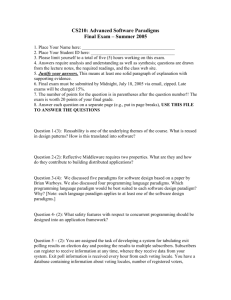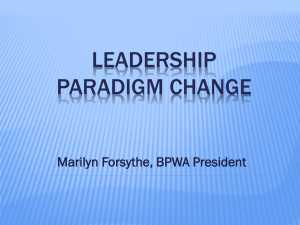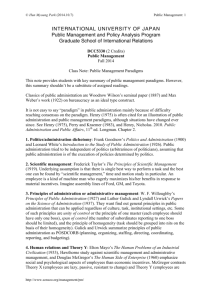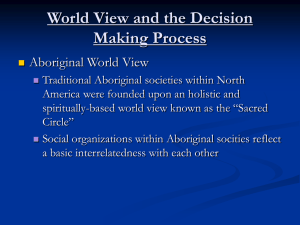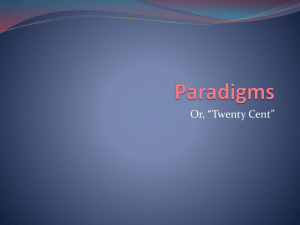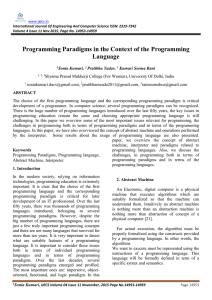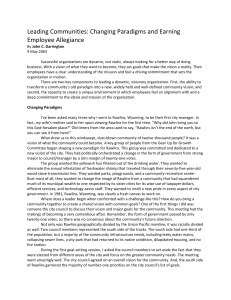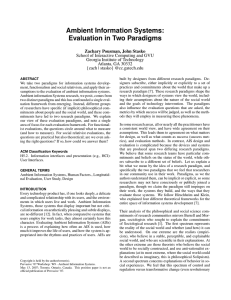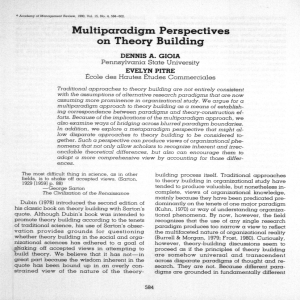Document 10492064
advertisement
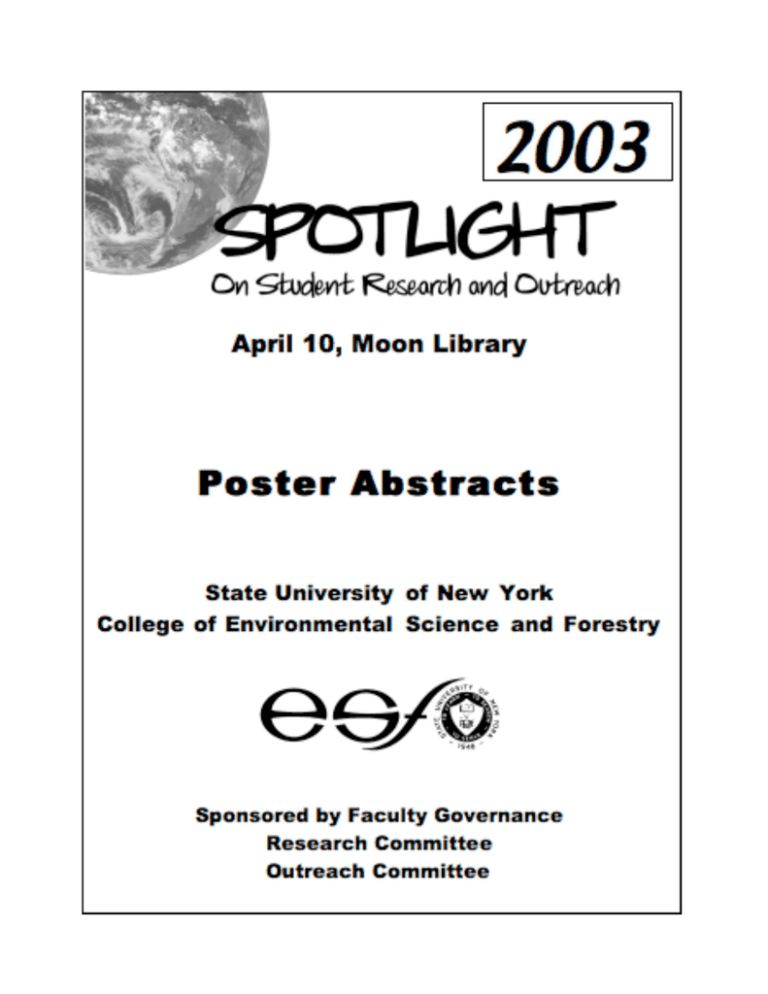
SPOTLIGHT ON STUDENT RESEARCH AND OUTREACH April 10, 2003 Syracuse, NY State University of New York College of Environmental Science and Forestry ACKNOWLEDGMENTS Graduate Student Association Office of Sponsored Programs Office of News and Publications Instructional Technology Service 2002 Spotlight on Student Research and Outreach SPOTLIGHT ON STUDENT RESEARCH AND OUTREACH Poster Session 10:00 – 3:00 p.m., Moon Library GSA Shifting Paradigms Conference 3:00 p.m., Alumni Lounge, Marshall Hall DR. CHAD OLIVER Director, Global Institute of Sustainable Forestry, Yale University Speaking on: Paradigm Shifts, Changing Generations and Global Forest Sustainability 4:00 p.m., Alumni Lounge, Marshall Hall PANEL DISCUSSION Dr. Oliver will be joined by: Kent Gilges Director, Forest Conservation for Canada & Midwest The Nature Conservancy Greg Comatas Coordinator - Procurement, Forest Resources, NE Region International Paper Tom Wolfe Director, Bureau of Public Lands, Division of Lands & Forests New York State Department of Environmental Conservation Paradigm Shifts, Changing Generations, and Global Forest Sustainability1 Dr. Chad Oliver, Yale University Paradigms—similar to “mental models”—allow people to process large amounts of information rapidly. They are valuable for organizing, communicating, and accomplishing complex tasks. New paradigms are commonly proposed and are sometimes more accurate than the old ones. Making the transition in paradigms is an important consideration. A common issue is whether more problems are created by changing a paradigm or by accepting the imperfections of a commonly accepted paradigm. New paradigms are commonly resisted at first, with younger generations and those less advantaged by the present paradigm often most readily accepting the shift to a new paradigm. Consequently, acceptance of new paradigms often parallels generations in various fields; and new paradigms can be disliked and resisted both because they threaten a person’s way of thinking and because they are often introduced with an attention-getting flair. Some cultures accept new paradigms more readily than others. Several paradigm changes relative to forests are occurring—in the biology, economics, resource perceptions, ways of life, education, and ways we think about the future. The concept of Global Forest Sustainability will be discussed relative to the paradigm shifts. 1 Abstract of Invited Presentation, GSA Shifting Paradigms Conference, SUNY College of Environmental Science and Forestry, Syracuse, NY April 10th, 2003.
